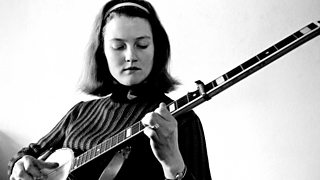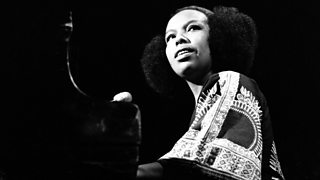Six life-changing pieces of music
Sometimes you hear a piece of music that stops you in your tracks. It might be a melody, a lyric, a voice. Our favourite music can shape us and soundtrack significant moments in our lives – relationships, achievements and tragedies. Soul Music is an entire series dedicated to these musical moments - each episode takes a different piece of music and sets it as the backdrop for some beautiful, heartfelt and moving personal stories. Here are six stand-out pieces of life-changing music…
1. Can’t Take My Eyes Off You
"It was something that I had waited for, for an entire lifetime", says Frankie Valli. In 1967, he was in need of a hit single to launch his solo career, when this song came along.
"It was just so incredibly unique. It ended up becoming one of the most important songs of its time, or of all time I should really say", Frankie reminisces.
Not many people can claim to have heard their favourite song in space, but that's exactly what astronaut Christopher Ferguson was lucky enough to experience when his wife picked an early morning wake-up call whilst he was aboard the space shuttle Endeavour...
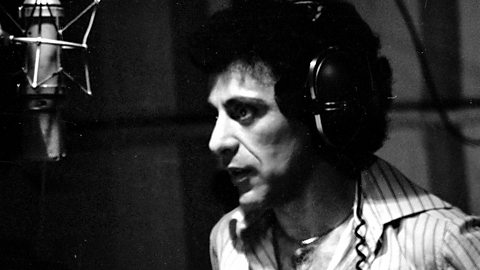
“I got to speak to her through that song”
An astronaut on hearing Can’t Take My Eyes Off You aboard a space shuttle orbiting Earth.
2. There Is a Light That Never Goes Out
The Smiths' anthem of hope, loss and love features one of Morrissey's most poignant lyrics. It "was born somewhere between a coffee table and a settee", says music journalist Simon Goddard, when one summer night in 1985 Morrissey went round to guitarist Johnny Marr's house to ask what songs he'd got. Johnny later referred to the first time they played the song as it being "the best song I’d ever heard".

When her young son was close to death with cancer, Sharon Woolley drew enormous strength from the song as she sat by his hospital bedside in the small hours of the morning. Miraculously, her son recovered, and Sharon has never forgotten the magical part she thinks the song played in this.
3. La Boheme
"For me, it is the perfect opera because there's not a bar, a word or anything that you would want to alter" - Opera director, John Copley CBE.

Puccini's quintessential bohemian opera tells the story of life lived right on the edge amongst a poor artistic community in Paris during a cold winter. It's a love story about a sweet heroine, Mimi, falling for Rudolph, who falls in love with her momentarily. One night she visits him to light her candle. As he touches her hand, he starts to sing Your Tiny Hand Is Frozen.
For opera devotee Ray Tabb, the song reminds him of the first time he met his wife, who was working as a bus conductress in Torquay, 1953. He sang this song to her as he got off the bus and just twelve months later, the couple married. Although Sylvia suffered from dementia in the last years of her life, she never forgot this music.
4. Dvorak's New World Symphony
While for many it will be always associated with the popular sliced loaf TV advert, the Largo from Dvorak's New World Symphony is an enduring a piece that never fails to move and inspire. Composed by Dvorak in 1893 while director of the National Conservatory of Music of America, it remains one of the most popular symphonies of all time.
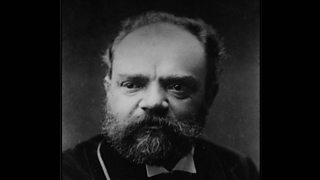
For one violist and conductor, the piece quite literally saved his life. Following a bad rehearsal, the conductor shared his story of the symphony with his orchestra. During the Great Depression of the 1930's, the conductor had been trying to find work as a violist, needing rent and food to support his young family. In desperation he went to a pawn shop, turned in his viola, and on impulse bought a pistol thinking the only escape from this situation was to kill himself.
As he walked out he passed a concert hall with a poster in front saying 'Free today: Dvorak's New World Symphony' and decided to go in. Sitting at the back, he decided to shoot himself in an intermission in a bathroom, but became captured by the music instead. By the last movement, he'd decided to not kill himself, and instead went back to the pawn shop to retrieve his viola to look for work again. His story and passion for the piece inspired his orchestra, with one member explaining how the piece now "reaches into the soul deeply, and makes me ache".
5. Albinoni’s Adagio in G minor
Albinoni's Adagio in G Minor is one of the most popular and moving pieces of music but, as academic and composer Andrew Gant explains, it wasn't actually written by Albinoni and is now attributed to the twentieth century Italian composer, Giazotto.

Award-winning veteran ���˿��� foreign correspondent, Malcolm Brabant recalls the 'cellist of Sarajevo', Vedran Smailovic, who played Albinoni's Adagio in G Minor everyday for weeks during the siege of Sarajevo, as the bombs fell. Malcolm felt Vedran Smailovic and the Adagio in G Minor really captured the sadness, and says he'll never forget that while there were people overlooking Sarajevo trying to kill the residents, there was this man demonstrating that music is more important that artillery, with music helping keep the city alive.
6. Mr Blue Sky
ELO's off-beam classic, Mr Blue Sky, was released as a single in 1978, having first appeared on the ELO album 'Out of the Blue'. Written by Jeff Lynne, it was a no.6 hit in the UK, and has endured on the radio airwaves ever since.
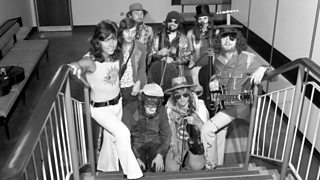
The upbeat track was a favourite of Tracey Collinson's husband, Nigel, who danced along to it in the kitchen all the time, and became their family's anthem and a huge part of their lives. After being diagnosed with oesophagus cancer in 2013 and given 3 years to live, Nigel passed away after just 12 weeks.
Knowing how much joy Nigel brought to her and her sons lives, Tracey felt she couldn't be sad, so ensured Mr Blue Sky was played at Nigel's funeral - which fittingly took place on a beautiful day with bright blue sky. Whilst organising a charity ball in Nigel's memory, Tracey's son suggested they record a version of Mr Blue Sky to raise funds for Cancer Research. His whole school got involved and the recording was sold as a charity single – once more lending poignancy to their much-loved classic family anthem.
Music to move you
-
![]()
Memories of first love, first borns and loss are stirred by the timeless love song written by Ewan MacColl for Peggy Seeger.
-
![]()
The Smiths' song is explored through personal stories. Released in 1986 on The Queen Is Dead album, it has become an anthem of hope, loss and love.
-
![]()
Writer and academic Jason King tells the story of how Roberta Flack came to cover The First Time Ever I Saw Your Face.
-
![]()
Strauss was 84 when he completed his last work. It was the Four Last Songs, which, although about death, convey a sense of calm acceptance.
